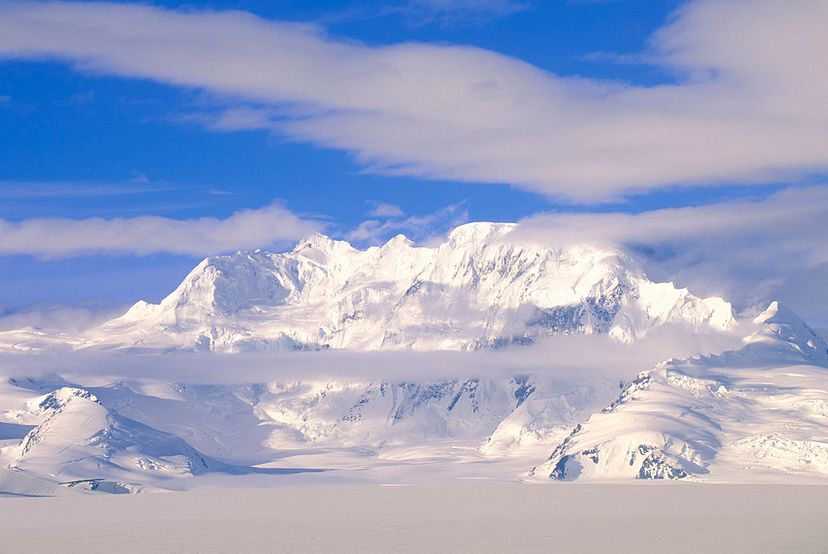
Advertisement
Rugged Adventure Awaits in America’s Largest National Park
Measuring in at more than 13 million acres, the massive Wrangell-St. Elias National Park and Preserve is the largest area in the National Park Service.
The park features four prominent mountain ranges, including the volcanic Wrangell Mountain Range and the St. Elias Mountain Range. The latter is the highest coastal range in the world. Twenty-five percent of Wrangell-St. Elias is covered by glacial ice, making it the most concentrated area of active glaciation in North America.
Advertisement
Activities in Wrangell-St. Elias National Park and Preserve
Wrangell-St. Elias’s nearly 10 million acres of wilderness area offers plenty of opportunities for adventure. Spectacular backcountry hiking, backpacking, mountaineering, and river rafting are just some of the outdoor activities that await hardy visitors that venture into its rugged grandeur.
Looking for recommended hikes? Check out Liberty Falls Trail and Root Glacier Trail, or see the entire hiking system including routes deep in the backcountry.
Flightseeing provides another way to experience the park’s magnificence allowing visitors to soar over glaciers and alongside the massive peaks.
Advertisement
Visiting Wrangell-St. Elias National Park and Preserve
For a park its size, Wrangell-St. Elias doesn’t get many visitors. Only about 65,000 people come to the park every year. Spread over 13 million acres, Wrangell-St. Elias is definitely a place you can go to escape the crowds. Only two gravel roads, Nabesna Road and McCarthy Road traverse the landscape.
The park headquarters and visitor center is located 10 miles south of Glennallen, AK on Richardson Highway. This facility is the hub of information for the entire park and features a theater, exhibits, bookstore, and a nature trail. Summer hours are seven days a week from 9 a.m. to 6 p.m., and winter hours are Monday to Friday (excluding federal holidays), 9 a.m. to 4 p.m. as staffing permits.
South from the headquarters on Edgerton Highway is the historic town of Chitina, which features a ranger station housed in a 1910 log cabin. The paved highway ends in the town and continues as the gravel McCarthy Road.
One prominent man-made point of interest in Wrangell-St. Elias is the Kennecott Mines National Historic Landmark. Opened in 1908, the Kennecott mine — named, but with a misspelling, for the Kennicott Glacier — produced almost $200 million in copper ore before closing in 1938. The park’s second visitor center occupies the historic train depot building in the old mill town.
Most visitors come to Wrangell-St. Elias between early June and mid-September. Summer is the best time to see the wildflowers and explore the backcountry. Spring offers a great time of year to snowshoe and cross-country ski. In the fall, the aspens and willows change colors and the peaks begin to receive fresh snow. Winters in Wrangell-St. Elias is dark and cold with lows sometimes reaching -50 degrees Fahrenheit.
Advertisement
Wildlife in Wrangell-St. Elias National Park and Preserve
Many species of animals, birds, and fish call Wrangell-St. Elias home.
Large mammals such as moose, mountain goats, and caribou can be found in the park, but it is most known for having one of the largest concentrations of Dall sheep in North America. Wolves, black bears, and grizzly bears are found throughout the park. Smaller mammals include fox, lynx, wolverines, marmots, beavers, and river otters. The coastline provides a habitat for sea lions, harbor seals, and sea otters. Whales and porpoises can be found in the waters off the coast.
The Copper River Valley attracts bald eagles, trumpeter swans, and Canada geese to its skies while the streams and lakes are abundant with salmon and trout.
Advertisement